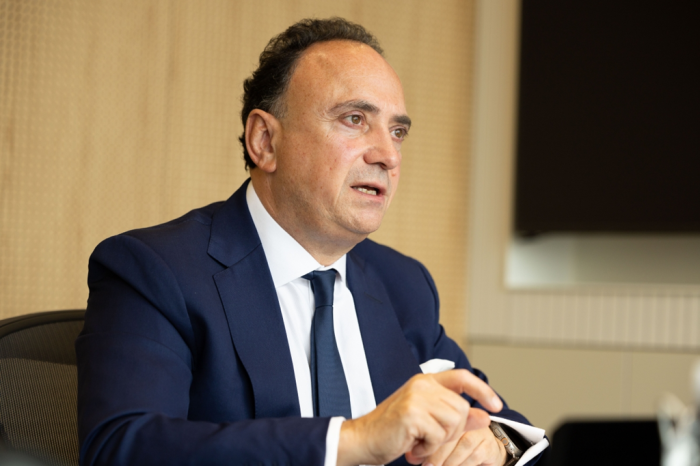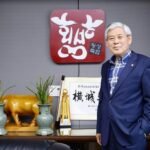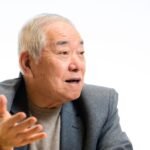
IFM Investors, a global investment manager owned by Australian pension funds, is looking to infrastructure as the fastest-growing asset segment for investment in the era of decarbonization and new technology such as artificial intelligence.
“There is an unprecedented opportunity from the global energy transition for equity and debt investors … and this is being turbo-charged by government policy,” John Gee-Grant, head of Global Client Solutions at IFM Investors, told The Korean Economic Daily in an interview on Thursday.
“Infrastructure is more immature as an asset class in portfolios than private equity or real estate. Therefore, as infrastructure comes into the mainstream, its growth rate gets higher. There’s a lot of government support for infrastructure investing around the world,” he said.
IFM is a global private markets specialist managing funds that are invested in critical infrastructure assets, such as airports, utilities, toll roads and ports.
As a pension-fund-owned, long-term investor, IFM invests on behalf of more than 600 pension fund and like-minded investors globally.
Owned by a group of Australian pension funds, IFM has A$221 billion under management, including A$109 billion in infrastructure investment.

The company invests across four asset classes – infrastructure, debt investments, private equity and listed equities.
The firm operates out of its headquarters in Melbourne, Australia, and 13 global offices, including Seoul.
PRIVATE MARKETS 700
IFM Investors recently surveyed 700 global institutional investors such as pension funds, institutions, wealth managers and consultants, and published its inaugural research report, Private Markets 700 (PM700), with plans to make it an annual publication.
Gee-Grant said the survey is a private market “barometer” that will look at investment trends to see “where particular biases are being implemented.”
“The results revealed that infrastructure investing is the fastest growing area of investment in private markets,” he said.
Of the respondents, 46% said they would invest in infrastructure over the next 12 months. When the investment horizon is expanded to 2029, the survey showed that 54% of institutional investors intend to invest in infrastructure assets.
The executive said infrastructure investments offer advantages such as inflation protection and stable cash flow.
Diversifying investments from equities and real estate into infrastructure improves risk-adjusted returns and long-term performance, he said.

MEGATRENDS
Gee-Grant assumed his role in May 2023. Based in London, he leads IFM’s Client Solutions business globally.
With over three decades of industry experience, Gee-Grant had served various senior global roles in sales, business strategy and client relations, most recently with PGIM and BlackRock, before joining IFM.
As institutional investors diversify their portfolios, infrastructure investments are also evolving.
In addition to traditional assets like airports and ports, tech-integrated infrastructure is emerging as a new investment opportunity, he said.
“When it comes to megatrends shaping investor sentiment, the rising new technologies such as AI, the Internet of Things and automation is captured in the PM 700 as the most important impact on their strategies,” he said.
He said telecom towers, data centers, fibers, and networks are experiencing great demand, in particular.

SOCIAL IMPACT IMPORTANT TO ASIAN INVESTORS
Gee-Grant said the PM 700 survey showed that the appetite for infrastructure investment in Asia is actually stronger than any other region.
The poll surveyed 70 clients across Asia, including 15 in Korea.
“As well as the strong desire to invest in infrastructure, they also looked at the complexity in measuring the social and environmental impact of investments. Social impact is clearly very important to Asia investors,” he said.
Of Asian investors surveyed, 89% said the private sector should do more to address social inequality, which is higher than the global average of 77%.
IFM Investors established its Korean office in 2017 and recently expanded its presence to strengthen long-term partnerships with Korean investors.
“I am here along with our head of Asia this week to reinforce our commitment to the Korean market. Our clients in Korea are absolutely critical to us. Korea is a really important component of our age strategy,” he said.
By Seok-Cheol Choi
dolsoi@hankyung.com
In-Soo Nam edited this article.















